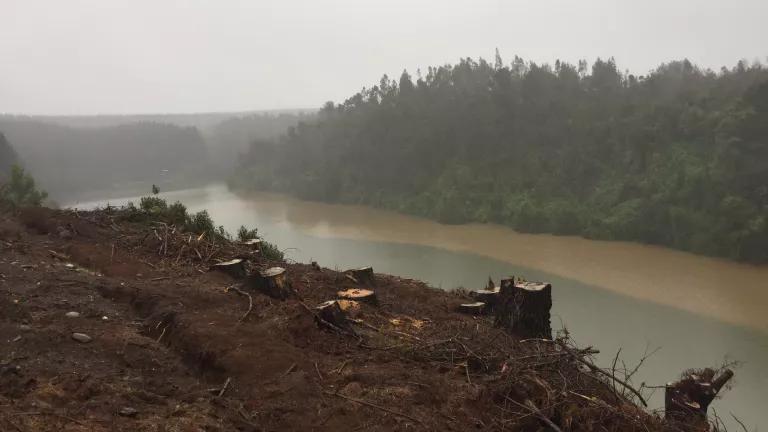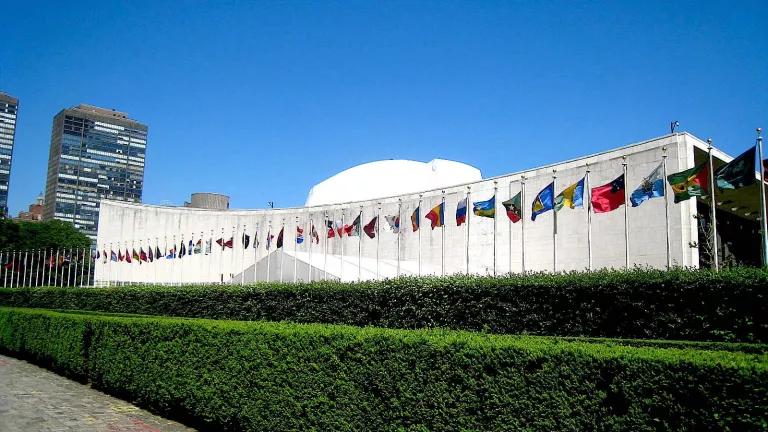What Side of History Will Procter & Gamble Be On?
Procter & Gamble should take responsibility of the impact its tissue products have on our planet and climate-critical forests like the Canadian boreal.
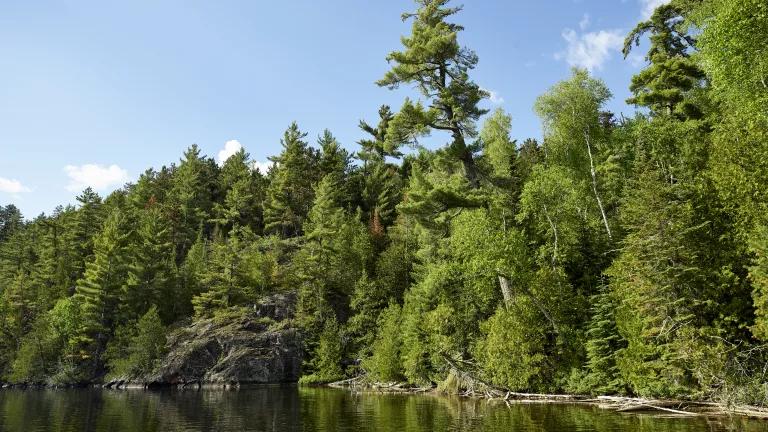
The Canadian boreal is one of the most climate-critical forests on the planet
In Greta Thunberg’s address to the U.N. Climate Action Summit two and a half weeks ago, she decried major corporations who talk only of “money and fairy tales of eternal economic growth,” instead of taking the drastic steps necessary to address our global climate emergency. On Tuesday, Procter & Gamble’s CEO David Taylor chose to focus on the 50% increase in stock performance this year instead of the fact that P&G’s tissue brands are literally flushing climate-critical intact forests down the toilet.
As the Amazon burns, another man-made disaster is playing out in the world’s largest intact forest—Canada’s boreal forest. This forest stores nearly twice as much carbon in its soils and vegetation as the world’s combined oil reserves. It also plays an essential role in the cultures of hundreds of Indigenous communities and provides refuge to some of North America’s most iconic species. However, companies like P&G rely on the boreal’s intact forests for toilet paper and other throwaway products, which drives over a million acres of clearcutting every year. This clearcutting and other pressures place Canada just behind Brazil in the global rankings of countries losing their intact forests at the fastest rate.
NRDC and our partner Stand.earth were there in Cincinnati, Ohio, for P&G’s annual shareholder meeting, in part to hold the company accountable for this incredibly short-sighted focus, and also to relay a message that P&G must change its sourcing policies to protect this globally critical forest on behalf of our members and activists, as well as 116 organizations and hundreds of thousands of petition signers.
Public pressure in P&G’s backyard
My colleague Ashley Jordan and I arrived at P&G’s headquarters around 7:00 am—two hours before the shareholder meeting would start. Dozens of activists were starting to show up for a rally outside the building, all coming to show their concern that P&G continues to use 100% virgin forest fiber from some of the most important intact forests on the planet for toilet paper. It was an important reminder that people across the country, even in P&G’s backyard, care deeply about this issue and are counting on the company to change.

Rally attendees call for P&G to stop flushing forests
Yesterday’s shareholder meeting was a major pressure point for the campaign, and it’s clear that momentum is building rapidly. Our supporters now include 116 organizations who have joined together in calling for P&G to stop sourcing from the world’s most carbon rich forests and find more sustainable alternatives for their tissue products, and in the last two months two Green Corps organizers in Cincinnati organized well over 1,600 Cincinnati residents who have taken action.
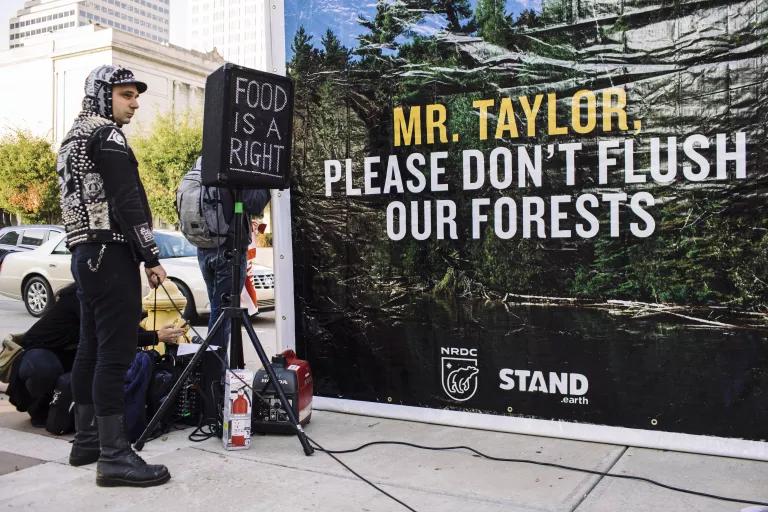
NRDC called on P&G CEO David Taylor to act
The local media was out in full force, and at least 70 people showed up at the rally we organized with Stand.earth. These Cincinnati residents included members of the Greater Cincinnati Native American Coalition, who came in solidarity with the Indigenous Peoples on whose land many logging industries operate in the boreal forest. They opened the rally with an acknowledgment that we were on the traditional lands of the Shawnee and Myaamia, whose stories are often written out of the history of Cincinnati. They also closed the rally with a song of thanks. Indigenous Peoples are leading in this fight—the boreal forest of Canada is home to hundreds of Indigenous communities, and their millennia of knowledge of the land means they are the best guardians for its long-term health.
The rally attendees were appalled and angry that P&G would sacrifice the planet’s largest remaining intact forest and largest terrestrial carbon sink just to make toilet paper. Many shared that they stopped buying Charmin because of our campaign.
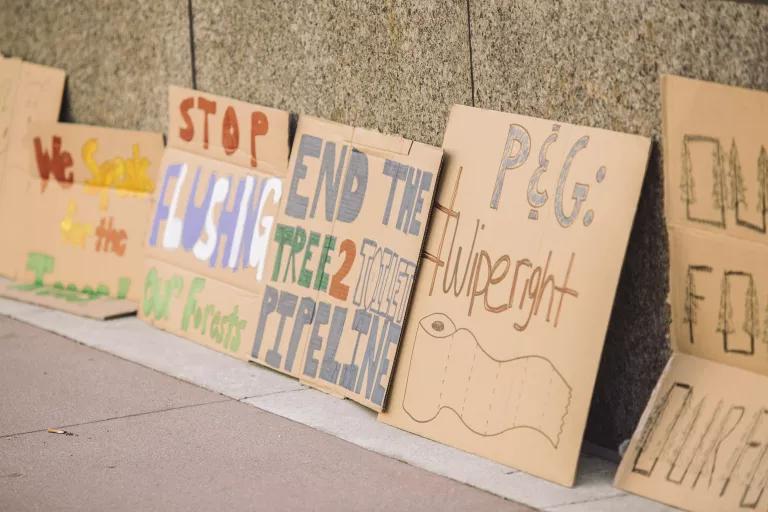
Signs from the rally outside P&G HQ
Inside the meeting, the pressure mounts
Inside the room, I got the chance to speak up on behalf of this massive wellspring of public concern. I pressed P&G on their failure to act, noting that flushing our forests down the toilet is “senseless, short-sighted, and irresponsible.” I asked P&G CEO David Taylor whether he wanted his company to be on the right side of history or not. His response was underwhelming. He continued to tout P&G’s work to replant trees (which doesn’t even begin to cut it when it comes to sustainable practices), as well as some recent announcements they’ve made that still fail to meet our minimum thresholds of what’s necessary.
However, it was clear in that room that P&G’s leadership and board were feeling the pressure. Members of the board lowered their heads as Tegan Hansen from Stand.earth and I spoke about Charmin’s impact on forests and caribou, and David Taylor was caught off guard by two volunteers who held banners at his eye level urging Charmin to stop flushing our forests.
After the meeting ended, several shareholders came up to us to ask more about our campaign, and more about what they could do to help.
A failure to act, despite more than a year of engagement
We’ve been publicly campaigning against P&G since February because their tissue products (Charmin, Bounty, and Puffs) are made of 100% virgin forest fiber and are sourced in part from Canada’s boreal forest, including intact areas that are vital for fighting climate change, for the survival of the threatened boreal caribou and other species, and for the cultural heritage and livelihoods of hundreds of Indigenous communities in Canada. This fact earned these brands an F in our report, The Issue with Tissue: How Americans are Flushing Forests Down the Toilet.
We’ve also been in conversations with P&G directly for more than a year. We gave them many opportunities to take the right steps to protect this vital forest and stop worsening the climate crisis with their tissue products, but they have so far failed to act.
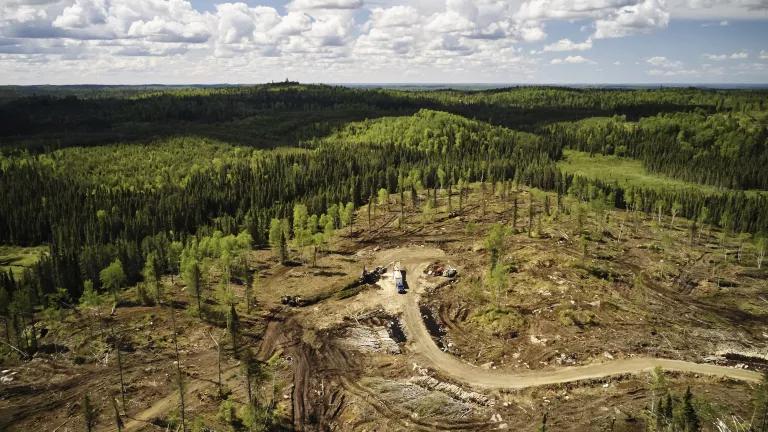
Boreal clearcutting leaves a barren landscape in its wake
While P&G still has not done three simple things we’ve asked of them—to stop sourcing from critical threatened caribou habitat, to use more sustainable alternatives to virgin forest fiber for their tissue products, and to make sure their suppliers adhere to the standard of securing free, prior and informed consent when operating in the traditional territories of Indigenous Peoples—their position is becoming increasingly untenable as public pressure grows.
In the shareholder meeting, I closed by telling David Taylor, “Millions of children worldwide are paying close attention to what companies like P&G do to take responsibility for their impact on the planet. In a few decades, if there are no more caribou and these intact forests are gone, our children will remember who was on the right side of history and who was not.” I then asked him what side of history P&G wanted to be on.
We are paying close attention to what P&G does next—the ball is in their court. But the longer they wait to deliver meaningful action, the more our planet suffers, and we will hold them accountable for that.
Tell Procter & Gamble CEO David Taylor that you want P&G to stop flushing our forests.


